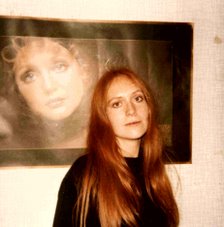As both a published author and an editor, I am in the lucky and unusual position of being able to view the publishing scene from both sides of the fence. I am in the middle of my third book-editing job in as many weeks, and am becoming ever more irritated at the common mistakes authors make. I'm not saying I haven't made some of them myself. My friend Jacula kindly proof-read a few chapters for me and I was horrified at the number of typos that had slipped through my eagle-eyed net. (One mistake: mixing metaphors!)
Here are my chief horrors.
i. Not checking the spellings of brands or products. This is just plain laziness. If I have to correct Liebfraumilch or Laurent Perrier one more time, I'll be forced to tip a bottle of one or the other, or even both, down my throat.
ii. Thriller writers who can't even spell essential words like Kevlar. It doesn't take a moment to type it into a search engine and come up with the correct spelling. The same with names of weapons. And foreign words and phrases - and these, as well as being correctly spelled, should be put into italics.
iii. Authors who set their story in a town or village, then vary the spelling of it throughout the book. The answer to this is to write your own outline, setting out spellings of characters, place names, etc., before beginning the actual writing. This is taking a professional approach.
iv. Authors whose characters start off with red hair and green eyes and end up as blue-eyed blondes. See previous comment and add descriptions of your characters.
v. Writers who invent an interesting subplot strand, such as what happened to Aunt Agatha's will, then forget all about it, leaving a loose end waving about at the end of the book like an unravelling jumper.
vi. Too many flashbacks. It's awful when you're thoroughly involved in what's happening in 1991, and are suddenly pulled back to 1928. It's much better if a story can unfold in a linear fashion, so that the events of 1928 precede the events of 1991. All good saga writers write linearly. It doesn't matter if the story jumps a decade or so, so long as it all makes logical sense.
vii. Too many incidental characters that have no important role to play in the story. If a writer goes to great lengths to describe a character and fill in some biographical details about them, the reader then expects them to play a major part in the story. I have just finished editing one book in which the reader was made to feel very involved in the life and quest of a detective, who was promptly forgotten two chapters later, never to be featured again.
viii. Too many viewpoints. Each time an author gives a character a 'voice', the reader is thrust into that character's head. If the reader is expected to follow the inner workings of too many characters' minds and emotions, they will just get dizzy and confused, so the rule is, limit the viewpoints to just three or four main characters.
ix. Not matching the dialogue to the characters. In life, different people have their own vocabulary, which may contain mainly swear words, or could sound as if they've swallowed a dictionary, but will always match their personality. Too many writers make all the dialogue sound the same, no matter who is speaking.
x. Weak, flabby endings that resemble the backsides of writers who spend too many hours hunched over their keyboards. I have never embarked on a novel without having the end fully worked out. Many times, I have written a good, strong final sentence before even writing the words, Chapter One. If you do that, you have something to work towards. It's like setting your destination into your SatNav, then navigating along the route till you finally, gladly, arrive.
Yes! After all this time - I'm Back!
9 months ago

7 comments:
Well said, Hydra!
This is a brilliant post. So much good advice here. Everyone who writes or wants to write should read it.
Thank you, folks! I can think of a few additions now. Think I shall write a follow-up and include things like people who forget their closing quotation marks and those who run one person's dialogue on from another person's without starting a new paragraph. It takes me hours to unscramble it and makes a book virtually unreadable. It's a steep learning curve, I can tell you!
Hydra - I see the one of the blogs Teresa reads is Menopausal Old Bag. Pleae ask her if she want an invitation to my private blog.
We writers should stick together, especially if we are Taureans of A Certain Age, Teresa.
Came here from Teresa's blog. Phew - some very true points here -and very scary! Hope I'm not guilty of too many of those dreaded deeds. I do confess to having written (in my first published novel) about a cup of tea that changed a couple of pages on, to a cup of coffee, and then back to a cup of tea! And not only did I miss it - so did the editor, and the copy-editor, and so did I again when I checked the proofs. Amazing. It jumped out at me like a sore thumb when I read the finished book!
I started reading this thinking, yeah, yeah, I know all this. Then remembered why... because I've made most of these mistakes at some time.
Always good to be reminded of the basics, so thanks.
Post a Comment